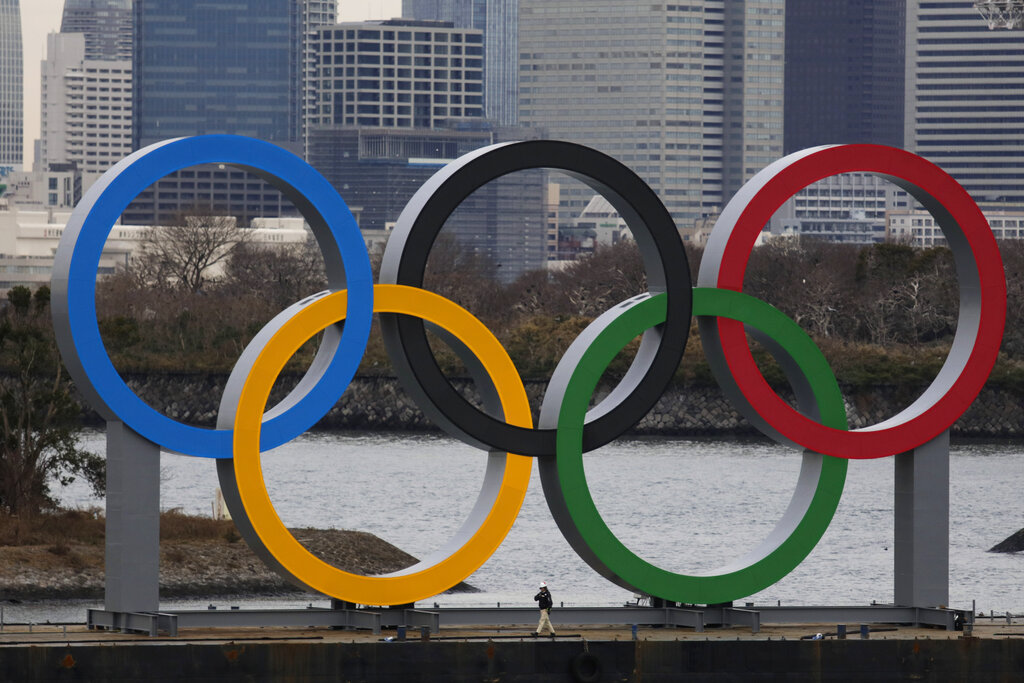
A worker is dwarfed by the Olympics Rings on a barge Friday, Jan. 17, 2020, in the Odaiba district of Tokyo. (AP Photo/Jae C. Hong)
TOKYO—Organizers of the 2020 Tokyo Olympics said the sports event would push through, even as the host country, Japan, grapples to contain an ongoing virus spread and allay fears of radiation effects in one of its games venues.
Makino Michiko, the Olympics organizing committee’s director for press relations, assured participating countries, including the Philippines, of “countermeasures” not only against the outbreak of the novel coronavirus (COVID-19), but of terrorist attacks as well.
Safety protocols in case of natural calamities like an earthquake or extreme humidity were also in place, she said.
“The Tokyo 2020 Games will not be stopped because of this virus,” Makino said in a recent briefing with visiting reporters from Southeast Asian countries, many of which would be sending delegates to the Olympics in July.
She said the committee at the moment was “not concerned” about possibly delaying the games. “For one thing, we still have [about] six months before the opening day [and it is] very possible that the coronavirus spread is contained [by then],” she said.
Amid flight bans and people growing anxious of traveling overseas, Japan is still expecting some 40 million tourists to visit this year, a projection made higher because of the Olympics.
From the Philippines, spectators were expected to come in support of competing athletes, among them world champion gymnast Carlos Yulo and pole vaulter EJ Obiena.
Makino said about 15,000 security personnel and government police would be deployed across 43 venues, and in airports and train stations, currently with several displays of the Olympics logo and the mascots “Miraitowa” and “Someity.”
Tokyo’s popular Skytree, a 634-meter tower, lights up at night with the words “Tokyo 2020,” while the reconstruction of the National Stadium was almost complete.
The torch relay kicks off on March 26 at Azuma Baseball Stadium in Fukushima City and would proceed southbound through the Tohoku region that was most devastated by the 2011 earthquake and tsunami.
Makino said this was precisely the reason they included Fukushima as an Olympics venue to show that the prefecture was being “revitalized” and dispel fears of radiation from the damaged nuclear power station.
“It has already been nine years since the Great East Japan Earthquake. We have confirmed the [current] radiation level [in Fukushima] is no different from the radiation levels in other major cities in and outside Japan,” Makino said.
She said too that workers at the Fukushima nuclear plant were now safe to work even without safety suits in about “96 percent” of the compound.